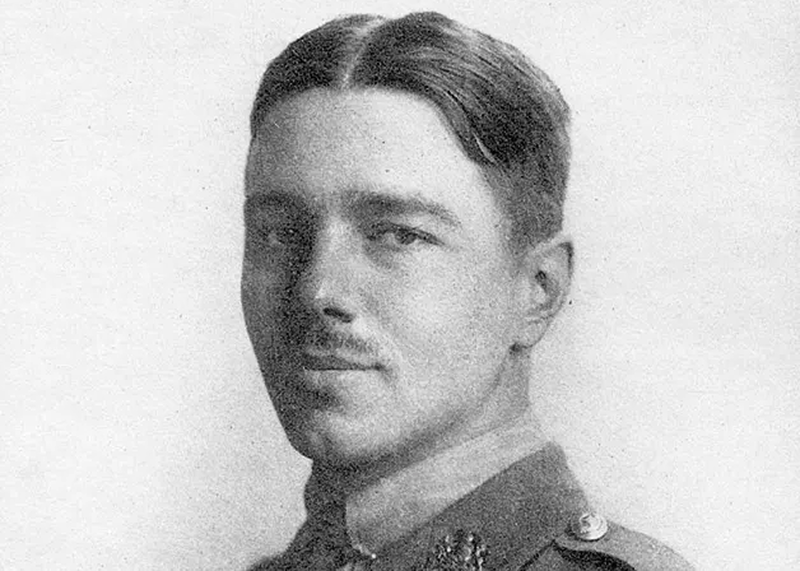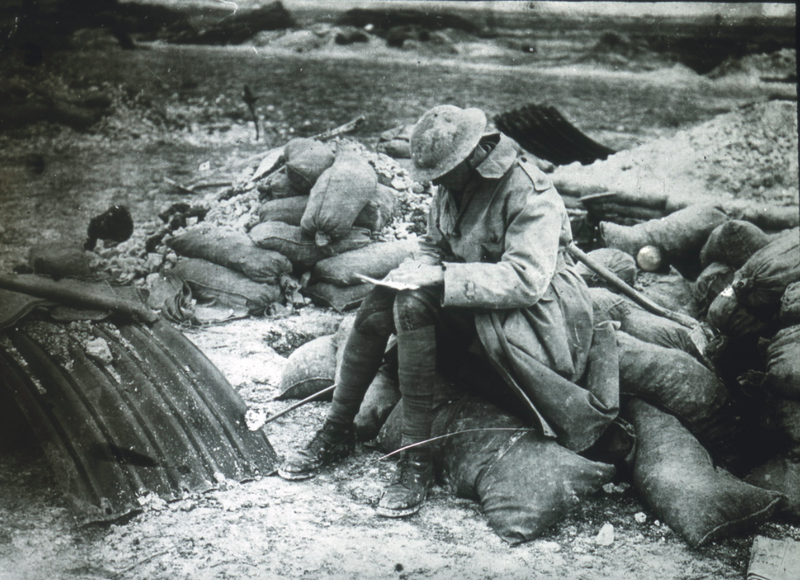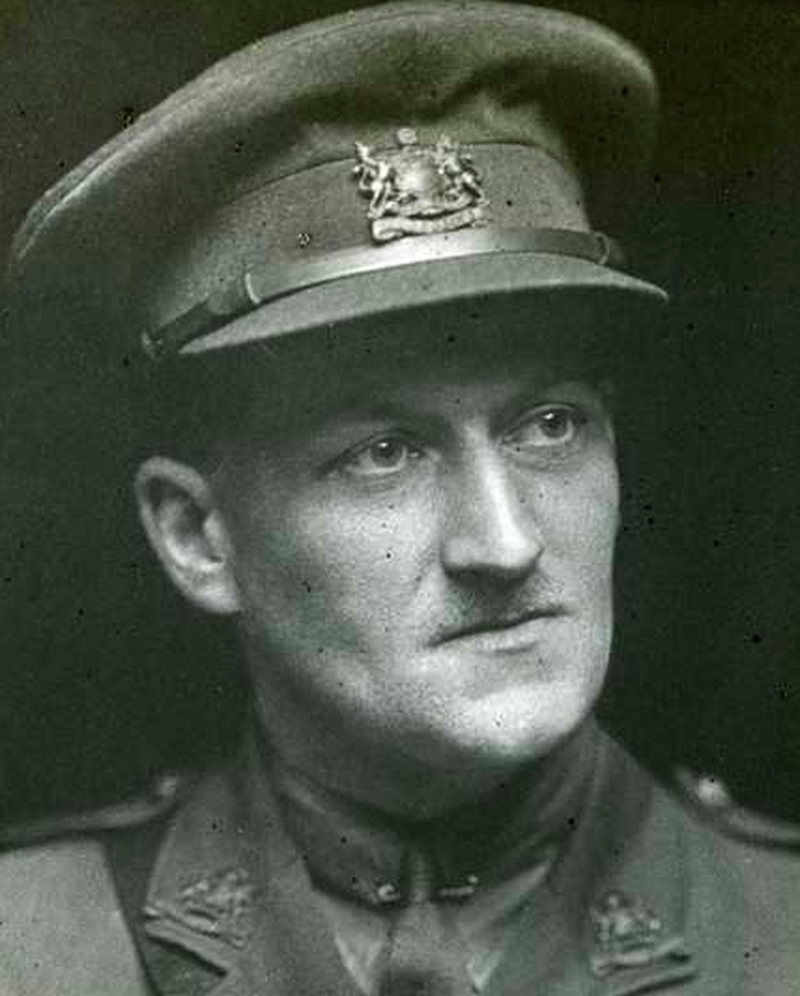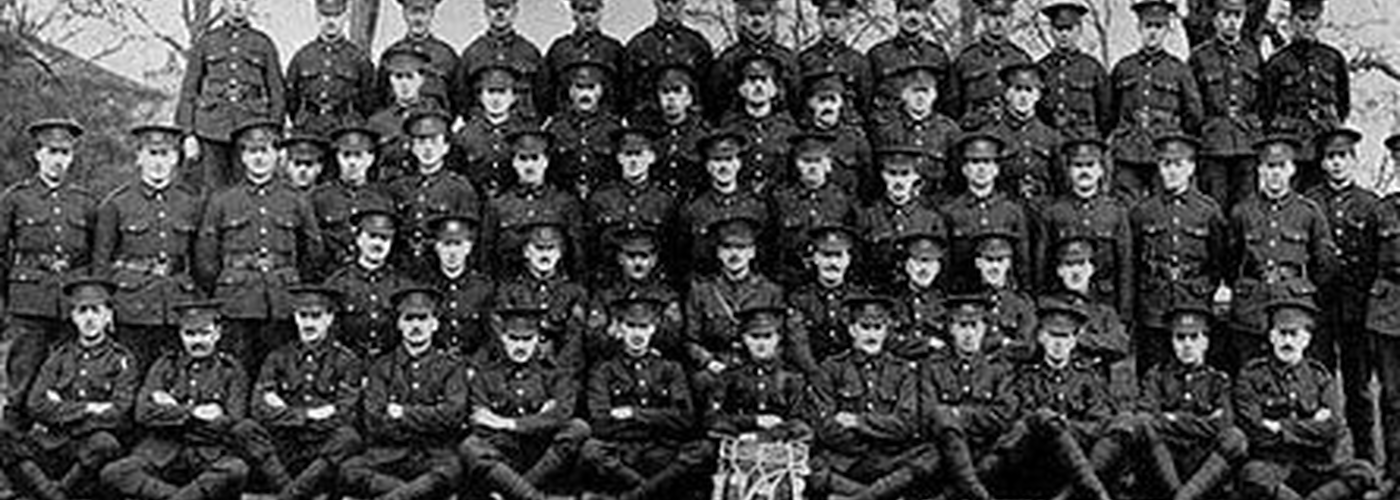100 years on, Jonathan Schofield explains a city namesake with a sad association
THERE are over fifty places that have taken the name of our city across the globe. These are predominantly in countries that were part of the former British Empire. One Manchester, inexplicably, is lost in the Amazon rainforest in Bolivia, which was never under British dominion.
The most melancholy assumption of the Manchester moniker lies in France. This is Manchester Hill where 79 men of the Manchester Regiment lost their lives at the beginning of the German Spring Offensive that began 100 years ago this week, in the last year of World War I.
The background to the event was that by early 1918 Germany knew its war effort was faltering. The Royal Navy’s blockade was hitting the country hard and there was increasing agitation at home. Meanwhile, with the USA now in the war on the side of the Western allies, it was only a matter of time before Germany would be faced by overwhelming forces.
The 16th Battalion of the Manchester Regiment (pictured top) with eight officers and 160 men had known what was about to happen
The German High Command decided on a last gamble to divide the British and French forces, push the British to the sea and out of the war, which would result, they hoped, in France suing for peace. Using fresh tactics the German March offensive made the battlefields of northern France fluid for the first time in three and a half years and the Germans made considerable advances. However, supply chains were overstretched and the advance ground to a halt by late-April.
It was reported that German soldiers were dismayed to discover the amount of food and supplies they found in captured Allied positions. The comparison to the situation on their side and in their home country caused morale to falter.
The failure of the offensive was the beginning of the end for Germany. By September the Allies had gathered their strength and in a hundred day campaign, armed with new tactics of their own, swept aside the German forces causing the complete collapse and defeat of the German Empire. The war ended in November 1918.
That’s the macro history.

Hundreds of thousands of lives were lost or permanently blighted by wounds in these closing months. Behind the back and forth of the great armies there was, as always, personal tragedy.
The first day of the German offensive in Spring 1918 saw more British casualties than on any other occasion in WW1, other than the first day of the Battle of the Somme. The terrible tally was 37,000 dead and wounded.
Manchester Hill, just outside Saint-Quentin in northern France, had been taken by the Manchester Regiment the year before. This had been the work of the 2nd Battalion, which counted among its ranks war poet Wilfred Owen. The hill’s tactical position made it an obvious target for the Germans. On 21 March 1918, the hill was attacked by the German army in overwhelming numbers.
"Here we fight and here we die.”
The 16th Battalion of the Manchester Regiment (pictured top) with eight officers and 160 men had known what was about to happen. As the Manchester Regiment’s own account puts it:
'Lieutenant Colonel Elstob gathered his men together and fully explained to them the system of defence. It was known that a great attack was imminent and that they had been selected to bear the brunt of the first onslaught. Pointing to a blackboard showing the dispositions he said, “This is Battalion Headquarters. Here we fight and here we die.”
'In the early evening, as the Battalion marched off towards the redoubt, the Platoon singing competition was judged by the Divisional Commander and when the band turned back (for they were not to go into action) the Commanding Officer said: “Those are the only fellows that will come out alive.”’

A singing competition seems somehow absurd given the events about to unfold. The Germans attack followed shortly. By 4pm on the 21 March most of the 16th Battalion were dead or wounded. Only two officers and fifteen other ranks returned to British lines. Of the remainder, 79 men were killed and the rest either wounded and taken into captivity, or taken as prisoners of war.
Lieutenant Colonel Elstrob was one of the dead, his body never found. He received a posthumous Victoria Cross, the highest British medal of honour.
The official citation for the medal is instructive:
‘During the preliminary bombardment he encouraged his men in the posts in the Redoubt by frequent visits, and when repeated attacks developed controlled the defence at the points threatened, giving personal support with revolver, rifle and bombs. Single-handed he repulsed one bombing assault driving back the enemy and inflicting severe casualties. Later, when ammunition was required, he made several journeys under severe fire in order to replenish the supply.
‘Throughout the day Lieutenant-Colonel Elstob, although twice wounded, showed the most fearless disregard of his own safety, and by his encouragement and noble example inspired his command to the fullest degree. The Manchester Redoubt was surrounded in the first wave of the enemy attack, but by means of a buried cable Lieutenant-Colonel Elstob was able to assure his Brigade Commander that "The Manchester Regiment will defend Manchester Hill to the last." Sometime after this post was overcome by vastly superior forces, and this very gallant officer was killed in the final assault.’

To commemorate the centenary and learn about the sacrifices made by so many during the war, more than 40 pupils from 22 schools in Greater Manchester have spent the last few days on a tour of World War One battlefields in Belgium and France.
Further commemorative events are planned. These include a wreath-laying ceremony at the Cenotaph and a special service at Manchester Cathedral on April 15th - one hundred years to the day since a similar service was held there in 1918 to remember those who had lost their lives in the battle.
There will also be a cultural event 'Manchester Hill Remembered' that will take place on Friday 13 April at 8 pm, at Manchester Cathedral. Presented by Brighter Sound, Manchester Histories and Manchester City Council, the multi media event, featuring leading Manchester musicians and involving over 60 artists and performers, will be an immersive, atmospheric and poignant performance of new music, poetry, spoken word, and digital projection.
Several of these kids from this gloriously multi-ethnic school wept openly.
Several years ago a teacher at Stretford Grammar School took her pupils on a trip to Paris. Her father had located the grave of her great grand-father, a member of the Liverpool Regiment. No member of the family had ever visited the grave. The coach stopped, the kids filed off and went over to the grave and graves of the long dead soldier’s comrades. They read the ages of some of the dead, not so much older than themselves, and several of these kids from this gloriously multi-ethnic school wept openly.
Wilfred Owen of the Manchester Regiment was killed in action one week before the end of the war in November 1918. His mother received the telegram informing her of his death on Armistice Day, as the church bells were ringing out to celebrate peace.
Owen’s poems had as their subject what he called, ‘the pity of War’. That is what those kids from Stretford Grammar School felt. Maybe we all should visit the war graves in France.














